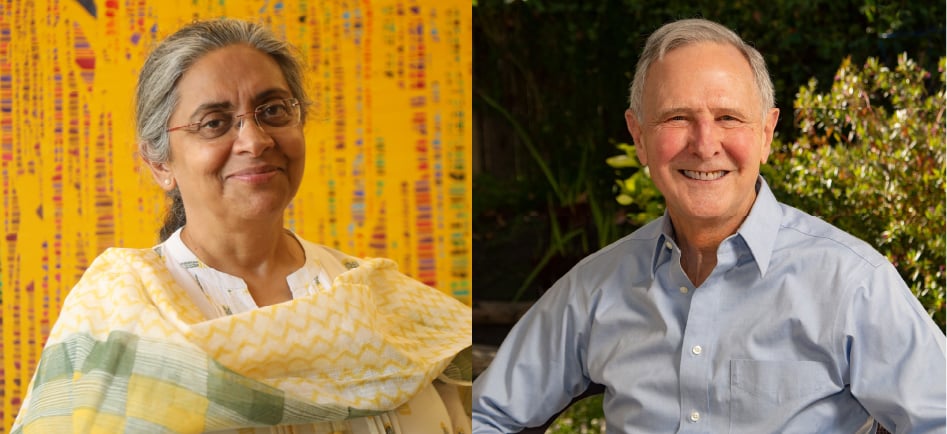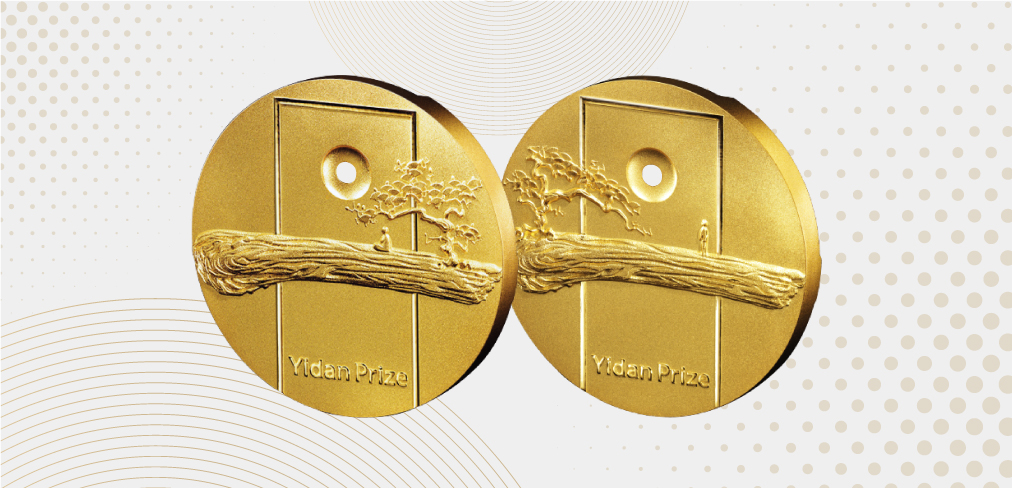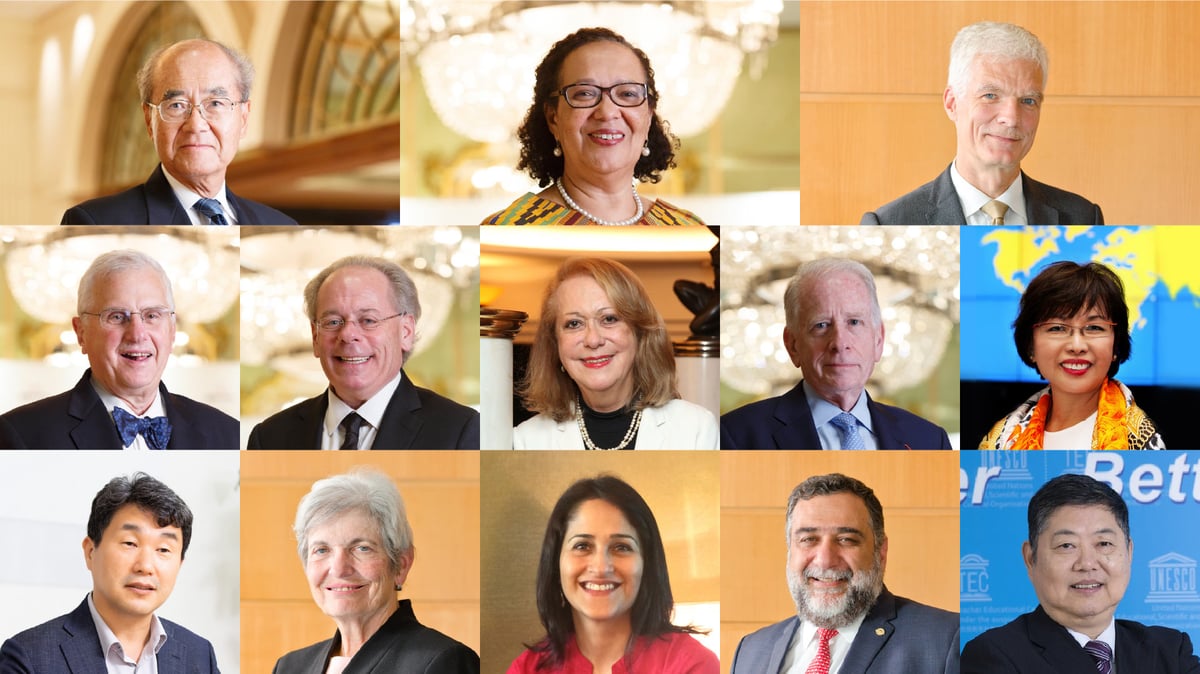
Shaping a Brighter Future Through Education
Dr Rukmini Banerji is awarded the 2021 Yidan Prize for Education Development, and Professor Eric A. Hanushek is awarded the 2021 Yidan Prize for Education Research.
How do we improve quality of education and learning outcomes at scale? Professor Eric A. Hanushek and Dr Rukmini Banerji’s work is doing just that. That’s why the judges of the world’s largest education award, the Yidan Prize, have chosen them as this year’s laureates.
Education powers progress
We owe it to learners to make sure they leave school with the essential skills and aptitudes they’ll need to navigate an unpredictable future. One that includes challenges like climate change, poverty, and inequality.
Teachers, too, need support: with training, technology, and robust research that shows what works—and what doesn’t—in the classroom. As we navigate the effects of a global pandemic, which disrupted schooling for hundreds of millions, we have the opportunity to reshape education for the 21st century.

The 2021 Yidan Prize laureates are already changing the game
The Yidan Prize Foundation aims to amplify their impact. Through the prize, it recognizes, supports and rewards people who are committed to transforming education, and brings them together to share and promote the most effective ideas.
Professor Eric A. Hanushek, 2021 Yidan Prize for Education Research Laureate and Paul and Jean Hanna Senior Fellow at the Hoover Institution of Stanford University, is a globally recognized leader in the economics of education. His work has given us the international standard for measuring how teachers and schools perform. And it’s shaped the UN’s Sustainable Development Goal 4 (SDG 4) by including learning outcomes as a target. That’s because he’s demonstrated that it’s how much students learn – and not how many years they spend in school – that boosts economies. With the Yidan Prize funding, Professor Hanushek is planning a research fellow program in Africa, supporting local research talents to inform and influence policy, transforming education systems.
Dr Rukmini Banerji, 2021 Yidan Prize for Education Development Laureate, and her team pioneered an assessment program which revealed literacy and numeracy gaps among children who have already been in school for a number of years. Under her leadership, Pratham Education Foundation’s “Teaching at the Right Level” (TaRL) intervention has been used in schools and local communities to teach basic reading and arithmetic skills, so no children are left behind. This systematic, replicable model reaches millions of children annually in India, as well as in other countries in South Asia, sub-Saharan Africa, and is also emerging in Latin America. With the support of the Yidan Prize, Dr Banerji plans to expand Pratham’s early years education programs to build strong foundations early in a child’s life that can contribute towards the goal of seeing “every child in school and learning well”.

“This year, our nominees are working on projects that span over 130 countries and territories. They are rethinking education systems from top to bottom, tackling inequities and empowering learners”
— Dr Koichiro Matsuura, Chairman of the Yidan Prize Judging Committee and the former Director-General of UNESCO
The Yidan Prize champions innovation in education
Its independent judging committee selects two laureates annually representing groundbreaking education research and innovative practice. Each laureate receives HK$30 million (approximately US$3.9 million), half of which is a project fund to help them scale up their work.
The 13 judges are led by Dr Koichiro Matsuura, Chairman of the Yidan Prize Judging Committee, former Director-General of UNESCO. Mr Andreas Schleicher, Director for the OECD’s Directorate of Education and Skills, and Ms Dorothy K. Gordon, Board Member of the UNESCO Institute for Information Technologies in Education, head the judging panels for education research and education development respectively. This year five new judges from China, Colombia, India, Korea and the United States were added to the committee—adding new perspectives and strengthening gender balance and geographic diversity.
“This year, our nominees are working on projects that span over 130 countries and territories. They are rethinking education systems from top to bottom, tackling inequities and empowering learners,” said Dr Matsuura.
Education’s leading lights speaking as one
Yidan Prize laureates also join the foundation’s Council of Luminaries, working collaboratively to shape the future of teaching and learning. The Council gathers some of the world’s brightest minds in fields like economics, statistics, neuroscience, and psychology to develop strategies that harness the power of education to change lives. Using their collective voice – and wisdom – they hope to transform communities, economies, and societies.
They know that quality education is the single most powerful way to turn today’s challenges into tomorrow’s success stories. And it’s a huge task. That’s why the Yidan Prize Foundation focuses on recognizing the people already making an impact and giving them the resources and platform they need to scale up their work.
Thanks to experts like Professor Hanushek and Dr Banerji, we know more than we’ve ever known about the art and science of teaching and learning. Both make translating knowledge into action a central part of their work. In doing so, they’re unlocking brighter futures. Showing that when we all pull together, we really can create a better world through education.
The 2022 Yidan Prize nominations will be open on 19 October 2021 until March 2022.
